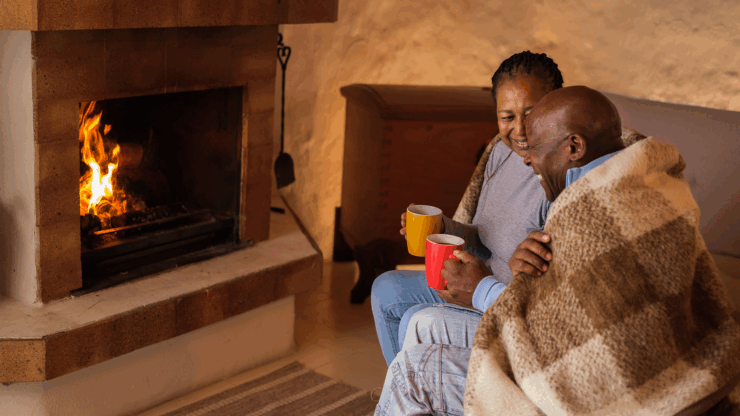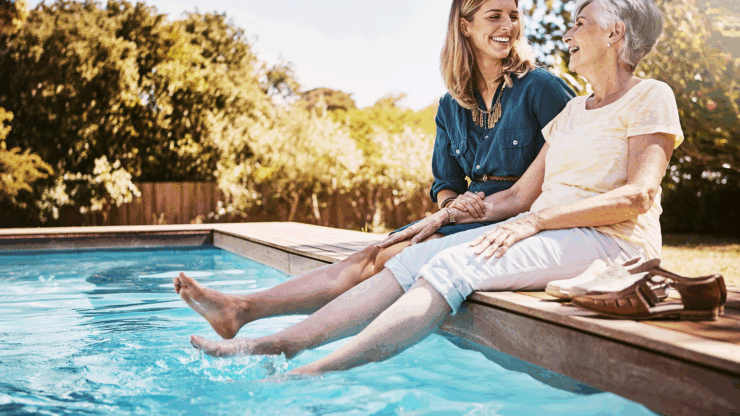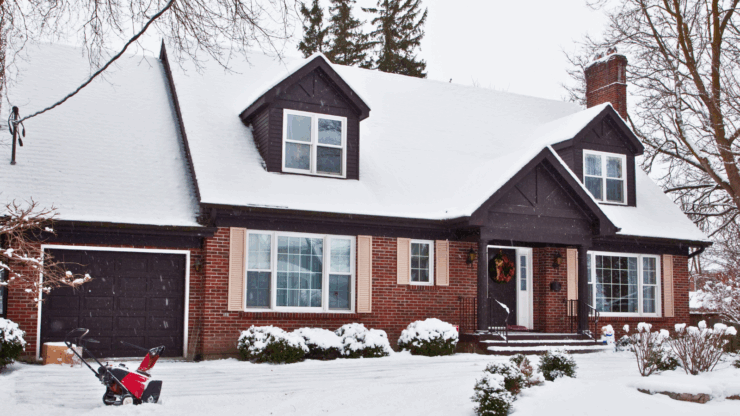
A Senior’s Guide to Common Winter Hazards
Key Takeaways
- Winter increases risks like slips, hypothermia, and isolation for older adults.
- Icy walkways and poor lighting can lead to serious falls.
- Cold weather may also worsen existing health conditions.
- Preparation and regular check-ins help keep seniors safe.
- LifeWorx caregivers assist with mobility, errands, and winter wellness routines.
Winter is a wonderful time of the year, but it can also be dangerous, especially for older adults experiencing frailty. As temperatures drop, the conditions outside can increase weather-related illnesses, falls on wintry surfaces, and/or injury caused by freezing (frostbite). Being informed and learning more about common winter hazards can help alleviate risks during the colder months. With slippery conditions and colder temperatures, you are more likely to get injured outside. Listed below are a few winter hazards you may experience outside:
Frostbite and Hypothermia
Frostbite happens when the cold weather damages the skin, possibly even damaging the bone. It typically affects body parts such as the ears, nose, chin, cheeks, toes, and fingers. If your skin turns red or dark or starts hurting, get inside. If the affected area remains discolored, run warm water over it and seek medical care.
Hypothermia happens when the body temperature gets too low. It is often caused by exposure to cold temperatures and leads to serious health problems, such as irregular heartbeat, heart failure, and damage to the kidneys or liver. All exposed body parts should be covered up with proper winter wear.
Falling
Falling over is much more likely to occur during the winter due to slippery conditions. Ice and snow combined with darker days make the walkways and parking lots a lot harder to navigate during the winter. Encourage elderly people to be careful when they are out and about, dress appropriately, and if possible, stay inside when the weather is bad.
Cold and Flu
As winter rolls around, so does cold and flu season. Seniors are at higher risk of catching diseases and are more likely to experience severe complications due to age-related immune system deficiencies.
Dehydration
While many people associate dehydration with summer and warmer weather, it’s a major risk for elderly people during the winter too. As we age, our bodies can dehydrate faster which puts older people at risk for dehydration and other complications.
Winter Itch
Since there is less humidity in the air during winter, dry skin is quite common. It helps to use moisturizing lotion and protective creams after bathing to relieve itching.
Mental Health
The coldness and darkness that accompany the winter months can lead to depression or make an existing condition worse. If you find yourself affected by the change in season, speak with your doctor to see what options you have. Be sure to find enjoyable ways to keep yourself active and occupied to keep your spirits high.
With the increased risk associated with winter weather, having someone check in on your loved one or yourself is crucial. If a family or friend isn’t nearby, a professional caregiver can visit your loved one as often as needed to monitor their temperature and help your loved one. With proper care and precautions, seniors can avoid winter hazards and remain safe and healthy throughout winter. LifeWorx offers a wide range of in-home care options for seniors and adults with disabilities or can provide companionship.
Find your peace-of-mind.
Explore LifeWorx’ in-home elder care services.

















